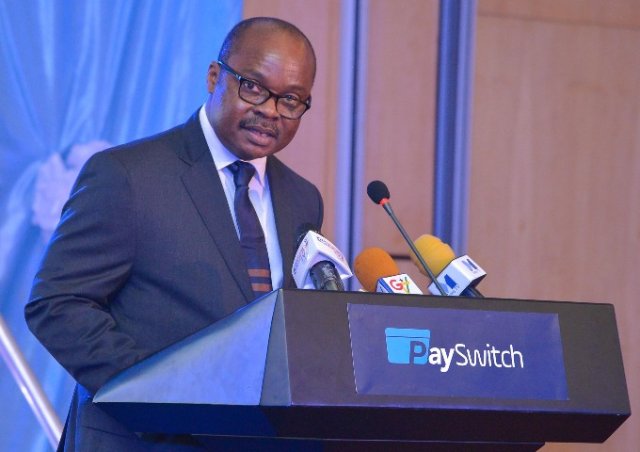Governor of the Bank of Ghana wants the judiciary to allocate special courts to specifically handle cases related to the recent banking crisis.
Dr. Ernest Addison acknowledged the “crucial” role of the judiciary to efficiently adjudicate financial sector cases, but was not impressed with how the cases are being dragged.
Speaking at the 2019 CEO Summit in Accra theme: “The Futuristic Economy: Technology-Driven Future of Business & Governance for Economic Transformation” said “In my opinion, designating special courts and judges to adjudicate matters relating to specific issues arising out of the Bank resolutions and revocation of licenses given the public interest, and the enforcement of collateral agreements, will help speed up the process,”
Admitting that the process of recovering loans from customers of the dissolved banks has “progressed slowly”, he said out of the total loans of GH¢10.1 billion taken over by the Receivers, total recoveries so far is in excess of GH₵ 731 million, constituting about 72 percent of the total proceeds realized.
According to the Governor, the Receivers have fully engaged the judicial system to assist in the recovery of certain assets and monies from some of the shareholders, directors and other loan defaulters of these erstwhile institutions.
There are about 50 cases currently pending before the courts, he said.
He also enumerated some of the challenges being encountered in their quest to recover loans.
“Despite these initial steps, the recovery process, has not been without challenges, with some individuals involved resorting to the court system to frustrate the process by engaging in frivolous actions; while low or poor documentation has also made it difficult for the Receivers to identify and pursue some of the loan defaulters due to insufficient or non-existent information.
“Investigations so far have also revealed that some of the assets were not registered in the names of the specific financial institutions but in the names of related or connected parties, making it difficult to dispose off the underlying collateral to offset the outstanding loans. Some of these loans were even fictitiously created and the directors are being pursued to recover such monies.”
The Governor was also concerned about non-performing loans, which he described as a “serious concern” that needs to be “tackled with urgency”.
“The NPL ratio remains high at 18.76 percent as at end March 2019. This level by all measures is not acceptable and more work is needed in this area,” Dr. Addison underscored.
“The high NPL situation has implications for the effectiveness of monetary policy conduct as it acts to impede the transmission mechanism. Lending rates will continue to remain high in the midst of high NPLs with implications on how the private sector responds to macroeconomic conditions in their quest to be innovative and support the real sector of the economy.”





